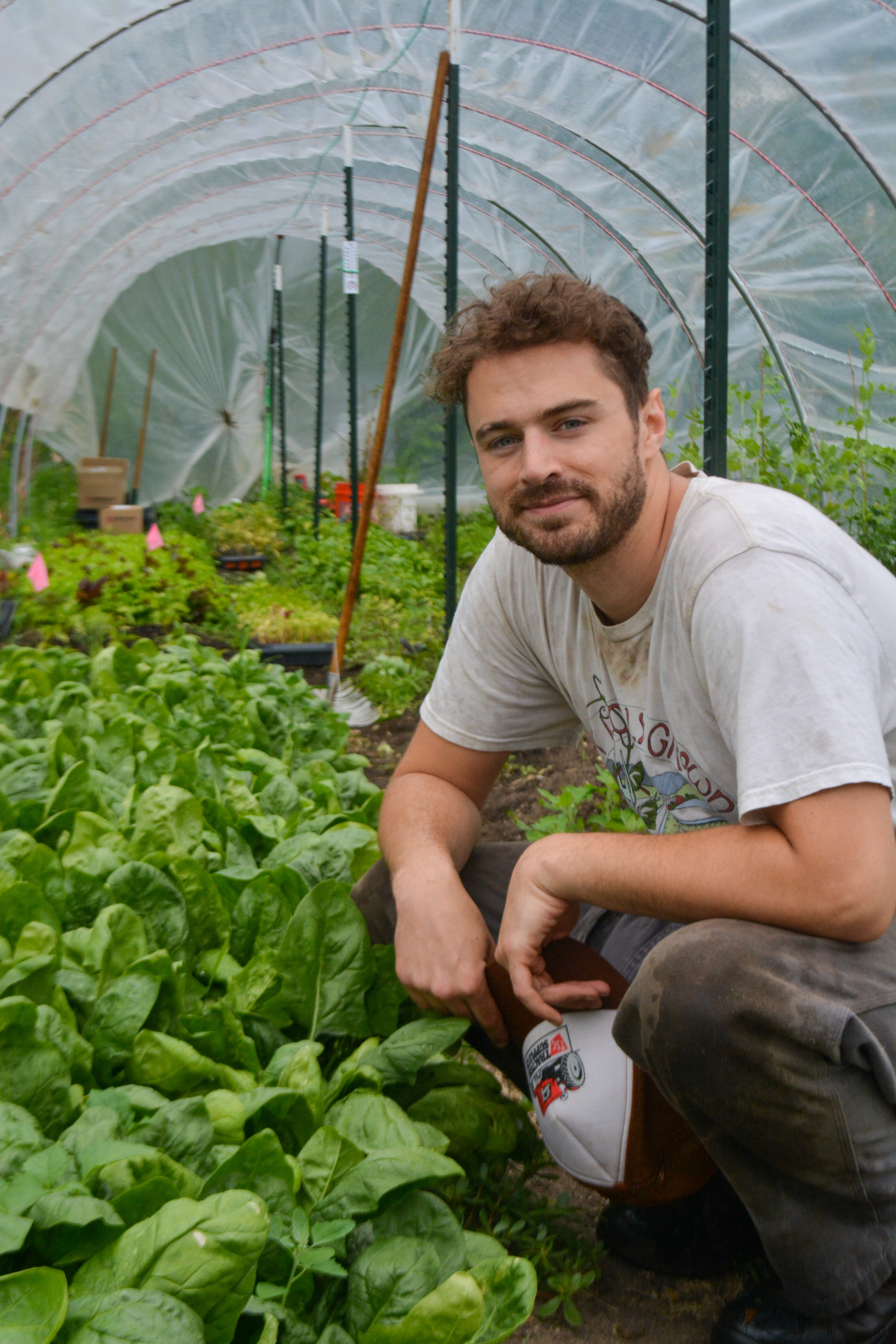What are you doing after graduation?
It is the question that college seniors face every year. To many, the options are overwhelming. You have the whole world at your fingertips; what are you going to do with it? If you’re still narrowing down your options, maybe you can draw some inspiration from Sam Bigley, the Peace Corps recruiter at Michigan State. After graduation, Sam spent a life-changing two years with the Peace Corps in Tamegroute, Morocco. If you’re looking for adventure, volunteer opportunities, and a chance to immerse yourself in your second language, the Peace Corps may be right for you!

A first-generation college student, Sam graduated from MSU in 2016, after studying Anthropology and Arabic with a concentration in Muslim Studies. He had some background knowledge in Arabic before coming to MSU, having found a beginner’s guide at a bookstore during high school. Through studying this text, he was enthralled with the history, culture, and language of the Arab world. As a self-described “country boy from a small town,” a huge portion of the world suddenly opened itself up to him, and he says that his fascination stemmed from a desire to understand.
By getting a head start on studying and by synthesizing his interest in foreign service with his knowledge of Arabic language, Sam was able to breeze through the initial reading and writing classes at MSU. However, the increasing complexity of the subject matter became daunting. This was a roadblock that he worked hard to overcome, a substantial investment in his future.
During his undergraduate studies, Sam studied abroad in Amman, Jordan. Although the coursework for this program was demanding and rigorous, he learned a year’s worth of Arabic in the span of two months. He was able to learn Arabic for more quotidian uses, as the MSU Arabic curriculum mostly centered on language for political uses at the time. He also got to visit cultural sites such as Wadi Rum, a desert valley reserve in southern Jordan. He examined the convergence of Roman and Islamic culture at the ruins of Petra. He was also there during Ramadan, and although he did not participate in the fasting, he often went out after sunset to soak up the nightlife.

As transformative as this experience was, Sam decided he needed an even longer immersive experience. So, he joined the Peace Corps and flew to Morocco in 2017. He was initially stationed in Meknes for three months for training. Here, he began studying the regional vernacular to compound upon his bachelor’s-level standard Arabic. The linguistic training provided by the Peace Corps provided him basic knowledge of Darija, the dialect of Arabic spoken in Morocco.
After this training period, Sam left his cohort for Tamegroute, a rural community located near Zagora. As a Youth Development Volunteer, Sam had a variety of responsibilities, including English classes, life skills classes, and other extracurriculars. He even taught Brazilian jiu-jitsu with another neighboring volunteer. Many of the classes were largely student driven. The students got to study what they wanted to, all while prepping for their Baccalaureate exams. Moroccan universities are state-funded, so scoring high on the entrance exams was a major priority. Sam was happy to be a part of the support for underfunded programs, so that members of the community would have more opportunities.

Over the course of his two-year stay in Morocco, Sam traveled to a myriad of cities. Marrakech. Fes. Chefchaouen. Ifran. Essaouira. Agadir. Tangier. The Peace Corps allows their participants vacation days, which Sam highly encourages future participants to take advantage of. He describes the culture in Morocco as communal and welcoming, especially surrounding mealtimes. Couscous Fridays were a highlight of the trip. Even people he had hardly spoken to would invite him to dine with their families. Sam truly felt like a part of the community, but he wanted to take things one step further…
During the Ramadan of his first year in Tamegroute, Sam did a “trial run” of participating in the fasting. It was extremely difficult, yet he still tried it out for several days. But during his second year, Sam estimates that he fasted for around 27 out of the 30 days of Ramadan. Anthropologists call this participant observation, in which a person learns about a culture by actively participating in the customs. This time enhanced his ability to fully understand other cultures as much as he could. And even if his track record wasn’t exactly perfect, he affirms that making mistakes is simply part of the process of learning, whether what you’re learning about is a language or a culture or anything else.

Learning Arabic taught Sam how to be resilient, adaptive, and forgiving of himself. He encourages language learners to not take themselves too seriously, and to not be afraid of messing up. With time and practice, anyone is capable of achieving their goals. In addition to his interest in foreign service, Sam is also working on urban agriculture developments in Lansing. When thinking about his career trajectory, he hopes to incorporate both his passions to work towards something meaningful in the realm of international relations and environmental sustainability. We can’t wait to see what amazing things he’ll do next!

By El Taverna
This story is part of CeLTA’s Languages Blog, whose mission is to tell stories that showcase the transforming power of language learning. These pieces give voice to the students’ own experiences and are not necessarily reflective of CeLTA’s, the College of Arts and Letters’, or MSU’s opinion.
